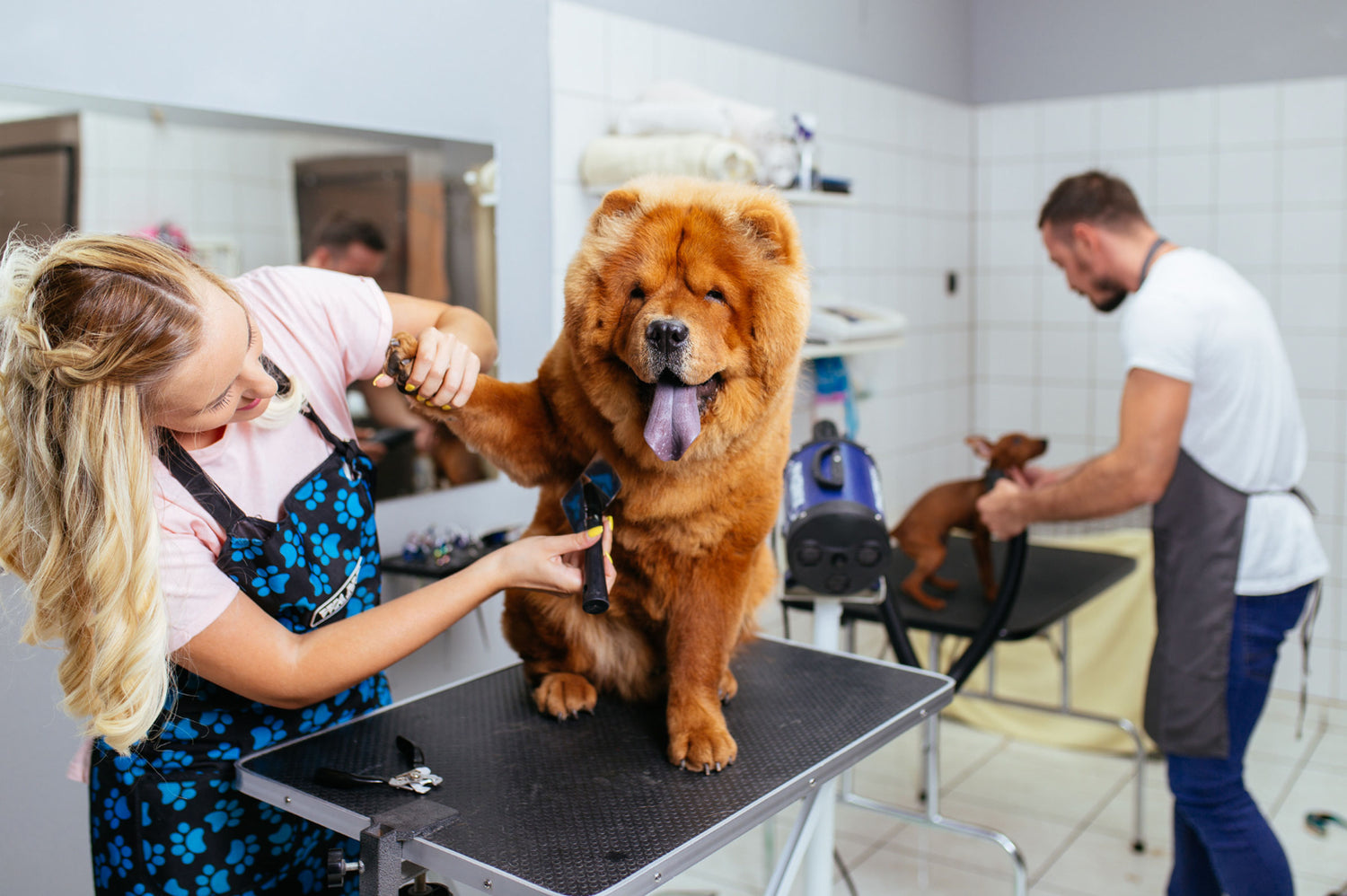Bathing your dog is an essential part of their hygiene and overall health, but how often should you do it? The answer isn't one-size-fits-all and can depend on several factors, including your dog's breed, skin health, and lifestyle.
Consider Your Dog's Breed
Different breeds have different needs when it comes to bathing. According to the AKC, these are some of the things you should think about when it comes to bathing your dog:
Oily Coats: Breeds like Basset Hounds have oily coats that may require more frequent baths to prevent unpleasant odors.
Thick Coats: Dogs with thick, double coats, such as Samoyeds and Malamutes, generally need less frequent baths but more brushing to keep their coats healthy.
Short-haired: Short-haired breeds like Beagles can often go longer between baths unless they get dirty or smelly.
Skin Conditions
Dogs with skin conditions may require specific bathing schedules as recommended by a veterinarian. If your dog has sensitive skin, consider using a hypoallergenic shampoo and bathing less frequently to prevent irritation. Bathing and harsh shampoos can sometimes strip the necessary protective oils away from your dog's skin causing dry, flaky, and itchy skin. Make sure you are using a shampoo with coconut oil and vitamin E to protect their skin, like our Protect Dog Shampoo.
Lifestyle and Activity
The environment in which your dog spends most of its time plays a significant role in how often they need a bath. Active dogs that spend a lot of time outdoors may need to be bathed more frequently due to dirt and odors picked up from the environment. Seasonality can also be factored in. When your dog spends more time inside during the colder months, they may need fewer baths than in the warmer months
Guidelines for Bathing Frequency
Here's a general guideline to help you determine how often to bathe your dog:
Every Month: A good rule of thumb for many dogs is a bath once a month.
As Needed: If your dog smells before the month is up, it might be time for a bath. Conversely, if your dog doesn’t smell and their coat looks healthy, you can often wait longer.
Tips for a Positive Bathing Experience
- Use Dog-Specific Shampoo: Human shampoos can be harsh (and even harmful) for a dog's skin. Always use a shampoo specifically formulated for dogs.
- Lukewarm Water: Ensure the water isn’t too hot or too cold. Lukewarm water is most comfortable for most dogs.
- Consistent Schedule: Keeping a regular schedule can help your dog get used to the routine, making bath time easier for both of you.
Conclusion
Bathing your dog too frequently can strip their coat of natural oils, leading to dry skin and irritation, while infrequent baths can cause build-up of dirt and oils, leading to skin infections and discomfort. Adjust the bathing frequency based on your dog's specific needs, and consult your vet if you're unsure about the best bathing schedule for your pet’s health and comfort. Use shampoo specifically designed for dogs, preferably with natural oils to prevent drying your dog’s skin out, like Protect Dog Shampoo.
Remember, a clean dog is a happy dog, and regular grooming goes beyond just keeping them smelling nice; it's crucial for their overall well-being.










